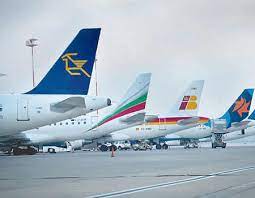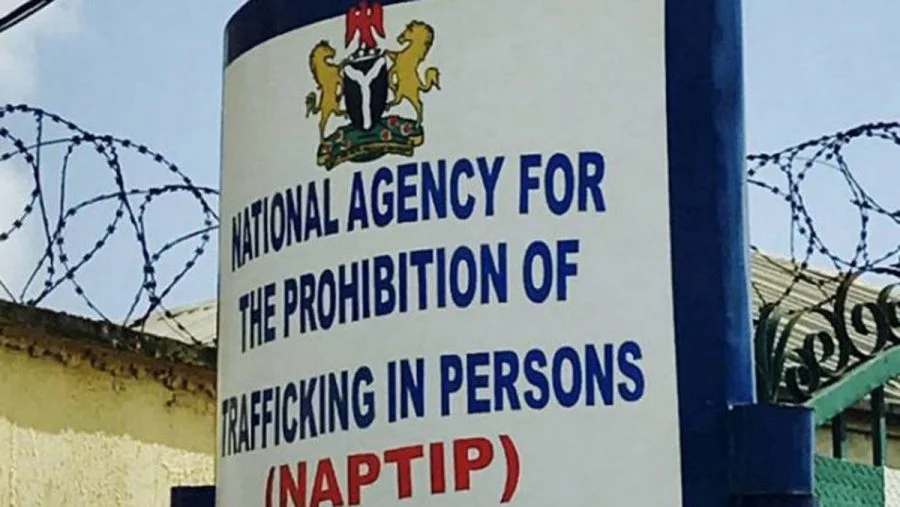For the third time in less than a month, the rate of exchange (RoE) applicable to foreign airlines has ballooned, hitting N582/$1 with attendant spike in the cost of international air travel.
At the new RoE, registered by the Global Distribution System (GDS), a six-hour Lagos-London economy class ticket now fluctuates between N1.1 million and N2.97 million – subject to airline of choice, place and time of booking. Its business class variant sells for an average of N3.36 million to N4.8 million.
While stakeholders regretted that the development has further pushed international air travel beyond the reach of average Nigerians, they acknowledged the inherent respite on foreign airlines that are patronising the Investors’ and Exporters’ (I&E) FX window for fund repatriation, and reopening of naira inventories to travel agencies in the countries.
It will be recalled that the international segment of the aviation sector has been in a stuck fund crisis in the last one year, with knock-on effects on inventories, asking price, and near-collapse of local travel agencies.
Earlier intervention by the Central Bank of Nigeria (CBN) did pledge $265 million in August 2022, leaving a balance of $200 million of the fund. But the stranded funds kept piling by daily sales of tickets, to warrant Emirates Airlines quitting the Nigerian route late October 2022. As at the last check, industry sources said the accumulated was well over $800 million.
The Guardian learnt that following a negotiation to end the logjam, the authorities recently conceded a shift from the official CBN window to the volatile I&E window for the repatriation of foreign airlines’ funds in Nigeria.
The push-pull effect has been evident in the applicable rate of exchange, and attendant cost of travel. At this time last month, the RoE was pegged at N462 to a dollar. About a week later, the rate climbed to N500/$1. Some days afterwards, it reached N551. Last week, the high vicissitude window hit a new high of N582/$1, with airfares tagging along.
Inquiries by The Guardian showed a varying price range across international carriers on the Nigerian route. For instance, Qatar and Ethiopian Airways have some of the cheapest airfares en route London destination – being one of the most popular for Nigerian air travellers.
A Lagos-London-Lagos economy class ticket seat on Qatar (with stopover in Doha), at the weekend, cost an average of N1.2 million. Its business class was sold for N4.8 million. The flagship African carrier, Ethiopia (via Addis Ababa), offered the two cabins for N1.1 million and N3.36 million, respectively.
Legacy carriers like British Airways (BA) and Virgin Atlantic (VA) are on the higher side. Direct Lagos-London-Lagos flight ticket on BA costs an average of N1.8 million in economy cabin and N4.41 million for business class travellers. VA offered the economy class for an average of N2.2 million.
American carrier on the Lagos-Atlanta-Lagos route, Delta Air, charged an average of N4.64 million for economy, and N8.36 million per seat in the business cabin. Similar route on Qatar (via Doha) averages N3.24 million for economy and N4.53 for Business Class travellers.
Travel operators and experts alike were unanimous that the new rates were inevitable and partly a good omen in the current market realities.
Notwithstanding the extra push in the cost of travel that is passed to consumers, President of the National Association of Nigerian Travel Agencies (NANTA), Susan Akporiaye, said the new dispensation in fare pricing is partly solving the problem of stuck funds, and accessibility of tickets to Nigerians.
Akporiaye told reporters that foreign airlines were beginning to repatriate funds from tickets sold in local currency, with a chain reaction in reopening inventories to travel agencies.
Chairman of the Airlines and Passengers Joint Committee (APJC) of the International Air Transport Association (IATA), Bankole Bernard, said foreign airlines accessing the I&E window might be the permanent solution to the perennial problem of stuck funds, and unleashing the commercial viability of the international segment.
Bernard reiterated that the stuck fund crisis had regrettably dragged on for too long because the government was indecisive on what to do with the FX liquidity crisis, and its effects on the foreign airlines.
“The government has been neither here nor there. If you are telling the airlines not to sell at NAFEX rate, but in Naira, and they are not getting their equivalence for repatriation, then the government is the creator of the problem.
“But the airline has started getting their money because they are not waiting for the CBN anymore. They are doing I&E window, though it is higher, but it is good for the airlines, and even the government. The only people that are suffering in all of this are the masses.
“But when you do not subsidise airfares, the airlines will become commercially lucrative because they can sell at the RoE and repatriate their monies easily. Instead of doing one flight, they can do three trips, and make more money. In transport, the real income comes from volume and not yield,” Bernard said.
He added that with the development, a lot of airlines are beginning to warm up to the travel agencies again, and “we are certainly going to sell more tickets this year than last year”.
Travel expert, Sunday Olumegbon, however, said that the approach would further disenfranchise average Nigerians from the aviation industry.
Olumegbon noted that the recent surge in both local and international air traffic would be eroded by cut-throat pricing mechanisms.
Indeed, a summary of 2022 industry performance by the Nigeria Civil Aviation Authority (NCAA), on the overall, showed a market rebound of over 16.17 million passengers recorded on both the domestic (12.7 million) and international (3.5 million) market segments.
The 2022 total traffic figure showed a 13 per cent increase when compared with 2021 figures (14.2 million), and the highest passenger traffic since the COVID-19 post-pandemic era.
Olumegbon said: “In a country of over 200 million, that less than seven per cent of the population travels by air is nothing to be proud of in modern aviation. It used to be eight per cent; so we are retrogressing in our numbers. With the new pricing, how many Nigeria residents will be able to afford international travel? That is the issue.
“Technically, we have solved a problem by creating another one. Aviation globally is the business of freedom. Here, we have further made it elitist, and only for the rich that can afford routine trips,” he said.
Apparently in agreement with Olumegbon, travel analyst, and member of the Aviation Safety Round Table Initiative (ASRTI), Olumide Ohunayo, said the solution to the high pricing regime is to build local capacity for fair competition.
Ohunayo explained that the upward adjustment in RoE is not the exclusive preserve of foreign airlines, rather, based on agreement with the CBN, and notification of the Civil Aviation Authority.
“Even before now, and due to accumulation of funds, the airlines have been selling only premiums to cushion the effect of the trapped funds. Now that they have increased the RoE through I&E window, I think we are gradually getting to the solution. What we need to do is to unify all these different rates like IMF, and the likes have advised. People are making so much money from the different windows, and breaking down the economy.
“Really, the fare going up is inevitable, and that is the situation we have found ourselves in. We only need to compete, and throw more capacities into the international segment. It is either you encourage Nigerian airlines to participate or increase frequencies of foreign airlines.
“I want to see Nigerian airlines participating in the foreign segment. I am seeing local airlines (Air Peace) going to India, Israel, but what is happening to the core routes like London, Ireland, U.S.? We must throw in the capacity to bring down prices,” Ohunayo said.






2 Comments